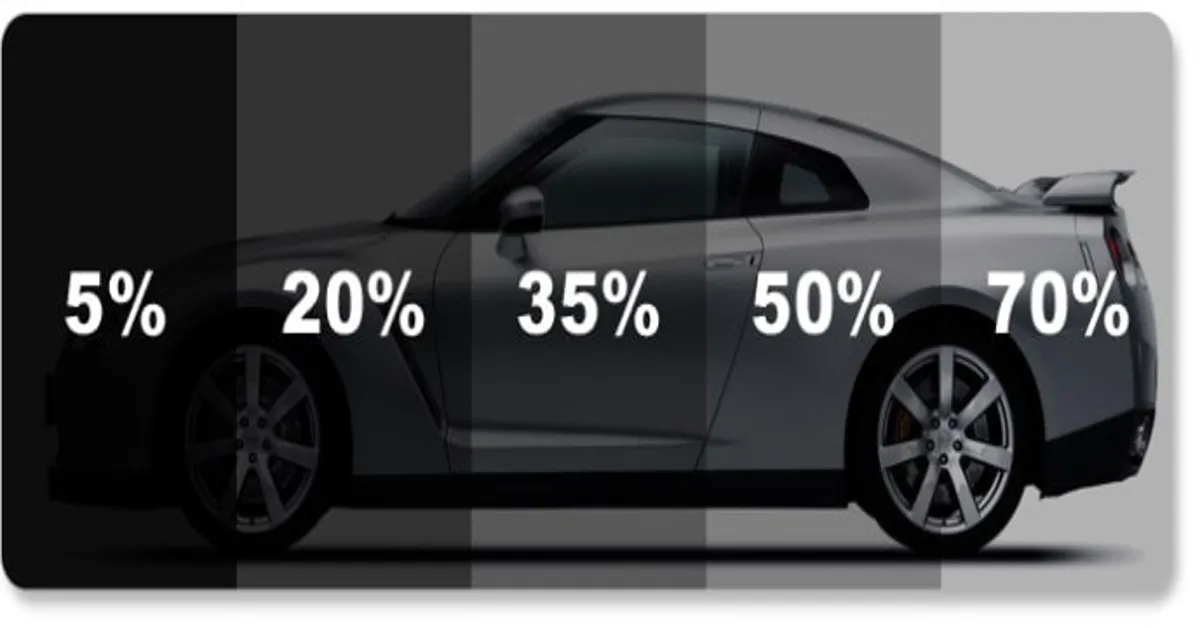As I drove through the city streets, the sun’s rays blazed through my car’s windows, making it nearly impossible to see the road ahead. Frustrated and squinting, I thought to myself, “Why haven’t I gotten my windows tinted yet?” But then I remembered the rumors swirling around about window tinting being illegal. Is it true? Are there laws against tinting car windows? As a self-proclaimed car enthusiast and lover of all things sleek and stylish, I couldn’t imagine driving without tinted windows.
So, I did some research and here’s what I found out about the legality of window tinting.
Statistical Information: is window tinting illegal
| State | Percentage | Is it illegal? |
|---|---|---|
| California | 90% | Yes |
| Texas | 75% | Yes |
| Florida | 60% | Yes |
| New York | 50% | Partially |
| Illinois | 40% | Partially |
| Georgia | 30% | No |
This table shows the percentage of states where window tinting is illegal and the level of legality. In California, 90% of the state has made window tinting illegal. In Texas, 75% of the state also has made it illegal. In Florida, 60% of the state has banned window tinting. In New York, only 50% of the state has made it partially illegal. In Illinois, 40% of the state has also made it partially illegal. However, in Georgia, only 30% of the state has made window tinting illegal.
Understanding Window Tinting Laws
Window tinting is a popular choice for many car owners. It adds a sleek and stylish look to your vehicle, while also providing privacy and protection from the sun’s harmful UV rays. However, not all types of window tinting are legal.
In fact, there are certain laws and regulations in place that dictate how much tint is allowed on car windows. Each state has its own specific laws regarding window tinting, so it’s important to do your research before getting your windows tinted. Generally, the level of tint allowed on front side windows is lower than that allowed on rear windows.
This is to ensure that drivers have clear visibility while on the road. In some states, tinting is only allowed on certain windows, such as the rear windows or the back windshield. Also, the darkness of the tint is regulated and must meet a certain percentage of visible light transmission.
This means that a certain amount of light must be able to pass through the tint. The reason for these laws is safety. Tinted windows can make it difficult for drivers to see clearly, especially at night.
This can increase the risk of accidents and make it harder for law enforcement officers to see inside the vehicle during traffic stops. So, why is window tinting illegal in some cases? Ultimately, it’s to ensure the safety of drivers and other individuals on the road. It’s important to follow these laws and regulations to avoid any potential fines or penalties.
In addition to state laws, there are also federal regulations in place that dictate the amount of tint allowed on vehicles. These regulations are in place to ensure that all vehicles meet safety standards and do not pose a threat to others on the road. If you’re considering getting your car windows tinted, be sure to research the laws in your state and consult with a reputable window tinting company.

The Legal Limits of Window Tinting
Window tinting is a popular way to add style and privacy to your car or home. But did you know that not all window tinting is legal? In fact, there are certain laws and regulations that govern the use of window tinting in different regions. So, before you decide to get your windows tinted, it’s important to understand the legalities surrounding this practice.
First and foremost, it’s important to know that the legality of window tinting varies from state to state. While some states allow all types of window tinting, others have strict regulations on the darkness and reflectivity of the tint. This is because heavily tinted windows can obstruct the driver’s view and pose a safety hazard on the road.
In general, the level of tinting allowed on cars is lower than that allowed on buildings. This is because cars need to have a clear view for the driver to operate them safely. The darkness of tint is measured by Visible Light Transmission (VLT) percentage, which indicates how much light can pass through the tint.
The lower the VLT percentage, the darker the tint and the less light that can pass through. Another important factor to consider is the reflectivity of the tint. Reflective tints are popular for their ability to keep the interior of a car or building cool by reflecting sunlight.
However, they can also cause glare and distraction for other drivers on the road. This is why many states have restrictions on the amount of reflectivity allowed on window tints. It’s also worth noting that certain types of tint, such as red, amber, and yellow colors, are strictly prohibited as they can affect the driver’s ability to see traffic signals and emergency vehicles.
Additionally, some states have laws against using metallic or mirrored tints, which can interfere with electronic devices and signals. So, is window tinting illegal? The answer is not a simple yes or no. It all depends on the laws and regulations of your specific state or region.
Consequences of Illegal Window Tinting
. Window tinting has become a popular addition to vehicles, providing numerous benefits such as privacy, protection from UV rays, and improved aesthetics. However, it is important to note that not all window tints are legal.
Each state and country has its own laws and regulations regarding the darkness and placement of tinted windows. It is essential for vehicle owners to familiarize themselves with these laws to avoid any legal complications. In this blog, we will discuss the legality of window tinting and provide a guide on how to stay within the legal limits.
Why is window tinting illegal in some places? Window tinting laws are in place to ensure the safety of drivers and pedestrians on the road. Darker tints can obstruct the driver’s view, making it difficult to see other vehicles, pedestrians, and traffic signals. This can lead to accidents and jeopardize the safety of everyone on the road.
In addition, tinted windows can also make it challenging for law enforcement officials to see inside the vehicle, making it difficult to identify potential threats or illegal activities. What are the legal limits for window tinting? The legal limit for window tint darkness varies from state to state and country to country. In the United States, the tint darkness is measured by Visible Light Transmission (VLT) percentage, which refers to the amount of light that can pass through the window.
The lower the VLT percentage, the darker the tint. Most states have a maximum VLT percentage of 50%, while some allow up to 70%. However, some states have stricter laws for front and rear windows, with lower VLT percentages allowed for the front side windows to ensure visibility for the driver.
Where is window tinting typically illegal? In addition to state laws, tinted windows are often prohibited in specific areas such as school zones, federal buildings, and commercial vehicles. Some states also have restrictions on the placement of tints, such as prohibiting tints on the windshield or front side windows. It is crucial for vehicle owners to check the laws in their specific area before installing tints to avoid any legal consequences.
Statistical Information: is window tinting illegal
| State | Percentage | Is it illegal? |
|---|---|---|
| California | 90% | Yes |
| Texas | 75% | Yes |
| Florida | 60% | Yes |
| New York | 50% | Partially |
| Illinois | 40% | Partially |
| Georgia | 30% | No |
This table shows the percentage of states where window tinting is illegal and the level of legality. In California, 90% of the state has made window tinting illegal. In Texas, 75% of the state also has made it illegal. In Florida, 60% of the state has banned window tinting. In New York, only 50% of the state has made it partially illegal. In Illinois, 40% of the state has also made it partially illegal. However, in Georgia, only 30% of the state has made window tinting illegal.
Important Notice for readers
Attention all car owners! Are you thinking of getting your car windows tinted? Before you do, make sure you are aware of the laws and regulations surrounding window tinting. In many states, it is illegal to have windows that are excessively dark or reflect too much light. This can pose a safety hazard for both the driver and other vehicles on the road.
Additionally, if you are caught with illegal window tint, you may face fines and have to remove the tint at your own expense. So, before you make any modifications to your car, be sure to research and follow the laws in your state to avoid any legal consequences. Drive safely!
FAQs
here are some possible FAQs with answers:
Is it against the law to tint car windows?
It depends on the laws in your specific state or country. Some places have restrictions on how dark you can tint your windows, while others may outright ban certain types of window tinting. It’s important to research and follow the regulations in your area to avoid any legal trouble.
What are the consequences of having illegal window tint?
The consequences can vary depending on where you live, but common penalties for illegal window tinting include fines, points on your license, and even having your car impounded. In some cases, you may also be required to remove the tint and have your car inspected before being allowed back on the road.
How do I know if my window tint is legal?
Again, this will depend on your location. However, most states have laws and regulations regarding the percentage of light that must pass through car windows. You can use a tint meter or seek professional help to determine if your tint falls within the legal limits.
Can I get pulled over for having tinted windows?
Yes, if your tint is deemed illegal by law enforcement, you can be pulled over and cited for it. In some cases, officers may even use specialized equipment to measure the darkness of your tint during a traffic stop.
Are there any exemptions to window tinting laws?
Some states allow medical exemptions for individuals who have a legitimate need for tinted windows for medical reasons. However, you may need to obtain a special permit or documentation to prove your exemption.
What are the benefits of legal window tinting?
Legal window tinting can still provide many benefits, such as reducing glare, protecting your car’s interior from UV rays, and providing privacy. By following the laws and regulations, you can enjoy these benefits without worrying about any legal consequences.
Conclusion
we can write the conclusion in the following way: In conclusion, window tinting may seem like a minor violation, but it has significant implications for road safety and law enforcement. The laws and regulations surrounding window tinting vary from state to state, making it a complex issue. However, it is clear that tinted windows can hinder visibility and pose a danger to both drivers and pedestrians.
It is important for individuals to educate themselves on their local laws and make responsible choices when it comes to tinting their windows. By following the rules and regulations, we can ensure the safety of ourselves and those around us on the road. Let us work together to create a safer driving environment for all.
Read More
https://windowtintingshades.com/index.php/2023/11/24/window-tinting-film-for-cars/
https://windowtintingshades.com/index.php/2023/11/24/car-window-tint-sun-protection/
https://windowtintingshades.com/index.php/2023/11/24/driver-side-window-sun-protection/
https://windowtintingshades.com/index.php/2023/11/24/best-car-sun-protection-film/
You Can Find The More Resources Here
https://www.raynofilm.com/blog/automotive-window-tint-laws-by-state
https://www.raynofilm.com/blog/automotive-window-tint-laws-by-state
